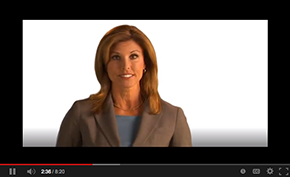Several of these terms are worth examining more closely. “Relevant” CE is described as that which broadens or deepens your understanding of one or more aspects of your work, expands your knowledge of practice in related disciplines that bear directly on your work, or facilitates your entry into a new area of practice. Or as a former chairperson of the Committee on Qualifications (COQ) once put it, “Relevant CE should make you a better actuary.”[1] The USQS places responsibility on each actuary to make a “reasonable, good-faith determination” about what constitutes relevant CE in light of their own work and career.[2]
For the purposes of the USQS, “professionalism” CE covers topics related to actuarial professionalism: the Code of Professional Conduct, the USQS, and the actuarial standards of practice (ASOPs). Attending programs that discuss these foundational professionalism documents may count as professionalism CE, as can serving on a professionalism committee, commenting on ASOPs exposed for comment, or reviewing the Code, USQS, and ASOPs.
The key to understanding what “organized” CE means is that the CE must include the ability to interact with experts from different organizations. Conferences, seminars, webcasts, in-person or online courses, or committee work may possibly all count as organized activities, as long as the actuary has the ability to interact with professionals from organizations other than their own. For webinars or online courses, the actuary must be able to ask questions or participate in a discussion through an interactive interface. In-house meetings sometimes use outside speakers to satisfy the requirement of interaction with actuaries or professionals working for different organizations.
If you find yourself a few hours short of satisfying the CE requirements before the end of the year, the Academy has several events planned that may help you fill the gap. For professionalism and organized CE, register for the last two professionalism webinars of the year. The Oct. 16 webinar, “Reliance: ‘…A Little Help From My Friends,’” will focus on the Actuarial Standards Board’s approaches to reliance in ASOPs and will offer mini-case studies in all practice areas.
The Dec. 13 webinar, presented by members of the Actuarial Board for Counseling and Discipline (ABCD), will discuss professionalism dilemmas and questions similar to those the ABCD has helped resolve. Attending these webinars live can earn you organized and professionalism credit. (But be careful counting your CE hours. Although attending one of these webinars will allow you to earn 1.8 hours of professionalism CE and 1.8 hours of organized CE, the total number of hours earned for one webinar would be 1.8, not 3.6.)
For obtaining CE on a wide range of topics in specialized areas in breakout sessions that may be relevant to you, consider attending the Academy’s Annual Meeting and Public Policy Forum, Nov. 5–6 in Washington. The Academy is also offering other programs in specific practice areas. The Life and Health Qualifications Seminar will take place Nov. 10–14, outside Washington; the Seminar on Effective P/C Loss Reserve Opinions will be held Dec. 4–5 near Baltimore; and the next PBR Boot Camp is Dec. 9–11 in Austin, Texas. Attending any of these can provide organized CE.
Staying up-to-date is important because it prepares us to provide the high-quality services that our principals and others rely on. So, take the time to check your CE records for this year and to meet the requirements by the end of the year, so that you can issue SAOs in January. If you have questions about CE, please see the USQS and the FAQs on the USQS. If, after reviewing both of those, you still have unanswered questions, you may always submit a question to the COQ or seek individual answers in a Request for Guidance (RFG) from the ABCD.
[1] “Professionalism Counts,” September 2016.
[2] USQS, Section 2.2.7.




